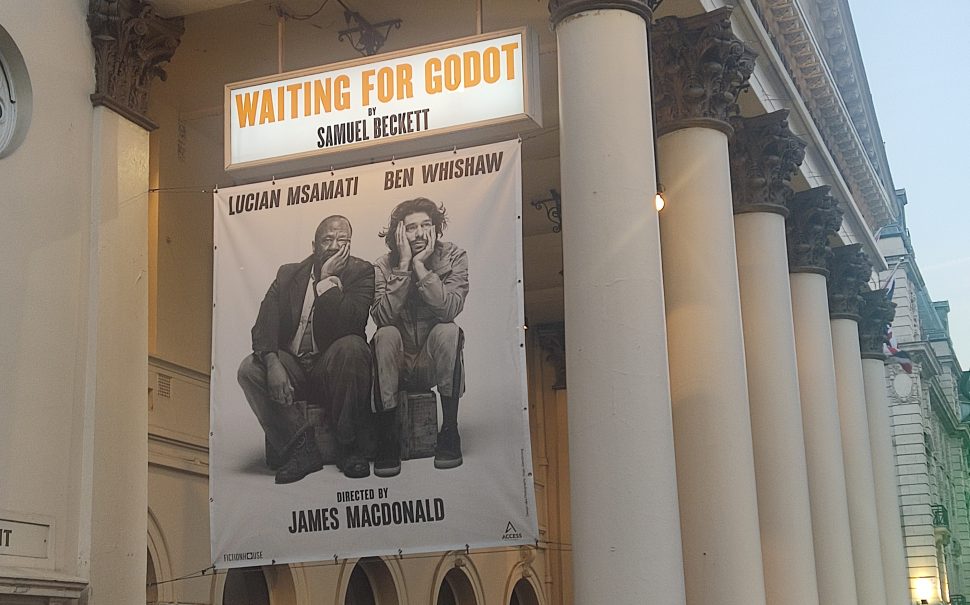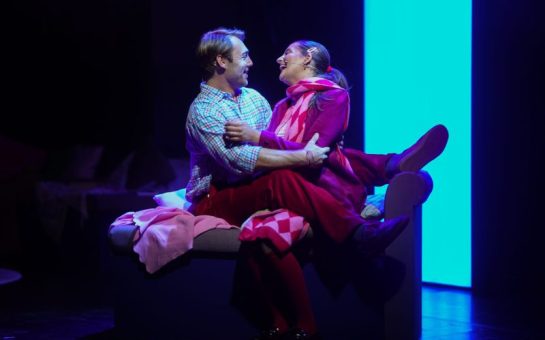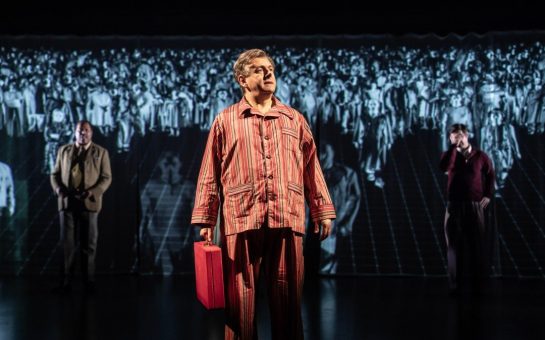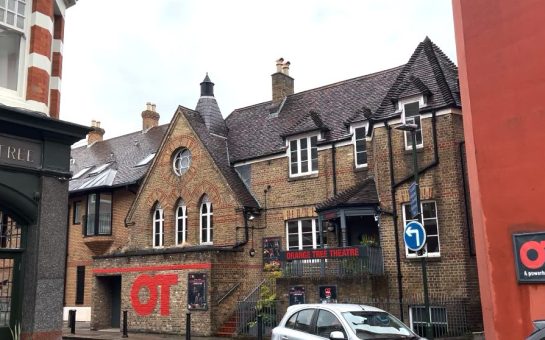James Macdonald’s West End production of Samuel Beckett’s existential tragicomedy began its previews last week at the Theatre Royal Haymarket, and will run through to December 14.
Starring Ben Whishaw (from Paddington, This is Going to Hurt) and Lucian Msamati (Gangs of London), Macdonald’s take on the often discussed play manages to convey its narrative’s overpowering sense of monotony with an infectious energy.
The play occurs on a raised platform made up of naught but a small boulder and a dead tree upon a sheet of grey mud. The platform forms the true stage, and reflects the productions stripped back approach.
The platform pivots with the curtain’s opening, partly reaching past the gold framed edges of the stage. It’s a simple trick, but the floating platform gives the play’s action a liminal quality that compliments its themes beautifully.
Our protagonists stand in silence, for an amount of time that pushes the audience into a quiet unease that rarely lets up in the play, before Whishaw and Msamati snap to life. The frantic movement of Whishaw’s Vladimir contrasts the stiff, laboured physicality of Msamati’s Estragon, creating a relationship that is as unlikely as it is unbreakable in the course of the play.
Jonathan Slinger’s introduction as Pozzo brings an injection of vigour as his self-proclaimed superiority to other men is undermined by his thinly veiled desperation for companionship and validation.
This companionship cannot apparently be found in the form of his slave, Lucky, who Tom Edden portrays as a wide-eyed husk of a man. Lucky’s only signs of ‘intelligence’ come in the form of his shambling responses to Pozzo’s commands, a gag that is played over and over again but doesn’t quite outstay its welcome.
Lucky and Pozzo embody the play’s theme of contradiction well, the latter bragging about Lucky’s eloquence whilst complaining about his incessant talking, despite the character being entirely mute up to this point barring his heaving breaths of exhaustion.
When Vladimir and Estragon give in to the allure of Pozzo’s claims about Lucky and ask him to “make him think,” the audience expect more unenthusiastic gibberish. Instead Edden bursts into a raving monologue, stuffed full of comically complex sounding nonsense. He bellows line after line for what feels like five straight minutes before stopping abruptly, to an eruption of applause from the audience.
The play often balances moments of silence against such assaults on the senses. The production’s minimalism in its staging battles with the presence of these grand feats, which would stand out in the most bombastic of west end productions.
These moments come as quickly as they go. Pozzo moves along on his way to sell Lucky, who returns to his placid state after his moment of lucidity. Vladimir and Estragon go back to waiting, Whishaw crying to the heavens: “Will night never come!?”
The night does come, darkness creeping slowly in from the corners of the stage as the pair pass the day in wait. They are visited by a boy who informs them that Godot can’t make it, but will surely come tomorrow.
The play builds in dread as the process repeats in the second act, a new day which resembles a distorted version of the first. Pozzo returns, now blind, and makes a mockery of the notion of time before night falls again. The boy arrives and repeats the same message as yesterday, whilst claiming to have never seen Vladimir before and hinting at a cycle that exists beyond the play’s borders.
Waiting for Godot plays with our anxieties surrounding our relationship with time by giving its characters time in abundance. They drown in the amount of time they have, but it’s never enough for them to use by making their own plans and helping themselves, instead standing idly by in the hopes that their concept of Godot will come and save them.
Like Lucky, their co-dependence on each other, and the enigmatic Godot, is their ultimate tragedy.
It was one of my favourite theatre experiences in recent years, and is certainly worth the admission, especially if you are one of the under-30s or Blue Light Holders who are eligible for discounted tickets at £25.





